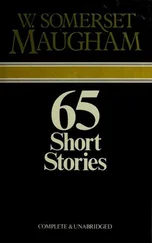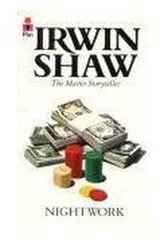Irwin Shaw - Short Stories - Five Decades
Здесь есть возможность читать онлайн «Irwin Shaw - Short Stories - Five Decades» весь текст электронной книги совершенно бесплатно (целиком полную версию без сокращений). В некоторых случаях можно слушать аудио, скачать через торрент в формате fb2 и присутствует краткое содержание. Год выпуска: 2013, Издательство: Open Road Media, Жанр: Современная проза, на английском языке. Описание произведения, (предисловие) а так же отзывы посетителей доступны на портале библиотеки ЛибКат.
- Название:Short Stories: Five Decades
- Автор:
- Издательство:Open Road Media
- Жанр:
- Год:2013
- ISBN:нет данных
- Рейтинг книги:5 / 5. Голосов: 1
-
Избранное:Добавить в избранное
- Отзывы:
-
Ваша оценка:
- 100
- 1
- 2
- 3
- 4
- 5
Short Stories: Five Decades: краткое содержание, описание и аннотация
Предлагаем к чтению аннотацию, описание, краткое содержание или предисловие (зависит от того, что написал сам автор книги «Short Stories: Five Decades»). Если вы не нашли необходимую информацию о книге — напишите в комментариях, мы постараемся отыскать её.
Short Stories: Five Decades — читать онлайн бесплатно полную книгу (весь текст) целиком
Ниже представлен текст книги, разбитый по страницам. Система сохранения места последней прочитанной страницы, позволяет с удобством читать онлайн бесплатно книгу «Short Stories: Five Decades», без необходимости каждый раз заново искать на чём Вы остановились. Поставьте закладку, и сможете в любой момент перейти на страницу, на которой закончили чтение.
Интервал:
Закладка:
“Well, what’ve we got to rob here? I don’t have any jewels and the one fur coat I own is seven years old and any thief in his right mind …”
“Then what was he doing here with his damn ladder?” Willard asked.
“Maybe he was just a peeping Tom,” Linda said.
“Just!” Willard gulped down his drink. “If you wouldn’t walk around naked with all the blinds up all the time …”
“Oh, don’t be such a prude.” Linda said. “Who’s going to see me in this house? The chipmunks?”
“Not only this house,” Willard said. “Wherever we live. Women these days.” He turned bitterly toward Martin. “When you get married you’ll find you’re spending half your time pulling down blinds to keep the American public from admiring your wife dressing and undressing.”
“Don’t be stuffy, John,” Linda said, her voice rising. “Who’d ever think in the middle of the woods like this …”
“I’d think,” Willard said. “And that guy with the ladder obviously thought, didn’t he?”
“Who knows what he thought?” Linda said. “All right, you win. From now on, I’ll pull every blind in the house. But it’s so awful. To have to live like that in your own house. All closed in.”
“It’s not being all closed in to put on a bathrobe once in a while,” Willard said.
“John,” Linda said, her voice sharp, “you have a terrible tendency to turn stuffy in a crisis.”
“Boys, boys,” Martin said. “I’m here on a holiday.”
“Sorry,” Willard said shortly, and Linda laughed, strainedly.
“You ought to buy a dog,” Martin said.
“He hates dogs,” said Linda, starting to turn the lamps out. “He prefers to live in a vault.”
They left it at that and went up to bed, leaving an extra light on in the downstairs hall, for security, although it was certain that the prowler, whoever he was, and for whatever reason he had come, would not come back that night, at least.
Willard called the police in the morning and they promised to come over. Linda had to invent an elaborate reason to take the children away until lunch-time, because she didn’t want them to see the policeman and ask questions and begin to feel insecure in their own house. It was difficult to get the children out of the house because they wanted to spend the morning with their uncle and they couldn’t understand why Martin wouldn’t come with them and he couldn’t tell them that he had to stay and try to give the police a description of a man who had prowled outside their window while they slept.
The children were out of the way when the police car drove up. The two policemen walked soberly over the grounds, looking professionally at the ladder and the balcony and the woods and taking notes. When they asked Martin what the man looked like he was a little embarrassed by the vagueness of the description he could offer and had the feeling that the policemen were disappointed in him.
“I’m pretty sure I could recognize him, if I saw him again,” Martin said, “but there wasn’t anything particularly special about him to latch onto. I mean, he didn’t have a big scar or a patch over one eye or a broken nose or anything like that.”
“How old was he?” Madden, the older of the policemen, asked.
“Sort of middle-aged, Sergeant,” Martin said. “Somewhere between thirty and forty-five, I guess.”
Willard smiled and Martin saw that Madden was trying not to smile.
“You know what I mean,” Martin said. “In between.”
“What kind of complexion did he have, Mr. Brackett?” Madden asked.
“Well, in that light, in the mist …” Martin hesitated, digging into his memory. “He looked pale.”
“Was he bald?” Madden made an entry in his book. “Did he have a lot of hair?”
Again Martin hesitated. “I guess he was wearing a kind of hat,” he said.
“What kind of hat?”
Martin shrugged. “A hat.”
“A cap, would you say?” Madden suggested.
“No, I guess not. Just a hat.”
“What sort of shape was he, would you say?” Madden went on methodically, putting everything down. “Tall, stocky, what?”
Martin shook his head embarrassedly. “I’m afraid I’m not much help,” he said. “He was standing there with the light just hitting his head, below the window, and I … I really couldn’t say. He looked … well, if I had to make up my mind about it … solid.”
“Have you any notions about who it might be, Sergeant?” Willard asked.
The two policemen looked at each other judiciously. “Well, Mr. Willard,” Madden said, “there’re bound to be two or three cases of people walking around at night in any town. We’ll check. They’re building that new shopping center near the bank and there’re a lot of workmen in from New Haven. All sorts of people,” he said, making a heavy judgment on foreigners from New Haven. He closed his book and put it in his pocket. “We’ll let you know if anything comes up.”
“I’m pretty sure I’d know him if I saw him,” Martin repeated, trying to reestablish himself with the policemen.
“If we get any ideas,” said Madden, “maybe we’ll ask you to come with us and look over a suspect or two.”
“I’m leaving tomorrow night,” Martin said. “For France.”
The two policemen exchanged glances again, bleakly eloquent about the civic attitude of Americans who witnessed crimes and then fled to France.
“Well,” Madden said heavily, without optimism, “we’ll see what we can do.”
Martin and Willard watched the police car drive off. “Isn’t it funny,” Willard said, “how easy it is for a policeman to make you feel guilty?”
Then they went into the house and Willard used the telephone to call Linda and tell her it was all right to bring the children home, the police had gone.
They had been invited to a friend’s house for cocktails that evening and after that to another friend’s for dinner and at first Linda said she wouldn’t go, she couldn’t dream of leaving the children alone in the house after what had happened. But Willard asked her what she intended to do—stay home every night until the children were twenty years old? Anyway, Willard said, whoever it was had had a real scare and would keep as far away from the house as possible. Then Linda decided that he was right, but now she’d have to tell the maid. It wouldn’t be moral, she said, to go out and leave the maid in ignorance. But, she warned her husband, there was a good chance that the maid would pack her bags and leave. The maid had only been with them for six weeks and was getting on in years and was not a calm type. So Linda went into the kitchen while Willard paced the living room jumpily, saying to Martin, “One thing I couldn’t stand is going through finding a new maid. We’ve had five since we moved in here.”
But Linda came out of the kitchen smiling and saying the maid was a calmer type than she appeared and was taking the news placidly. “She’s too old to be raped,” Linda said, “and she loves the children, so she’ll stay.”
Willard put the ladder in the garage and locked the garage and made sure the shutters were hooked from the inside in the children’s room and in Linda’s bedroom and in his own bedroom and in the bathroom in between, because all those rooms gave on the balcony against which the ladder had been propped the night before.
At the cocktail party, which was a replica of a thousand other cocktail parties being given on that particular Saturday night within a radius of one hundred miles from New York City, Willard and Linda told about the prowler and Martin had to describe what he looked like, feeling once more, as he had with the policemen, that it was a sign of low intelligence on his part that he couldn’t be more accurate. “He had this hat over his eyes and he didn’t have any expression on his face and he was rather pale, as I told the sergeant, and intense-looking.…” Even as he spoke, Martin realized that he was adding to the portrait of the man on the other side of the window in the misty night, that the intensity of the man’s expression was a new discovery, dredged from his memory, that the remembered face was being simplified, intensified, becoming heraldic, symbolic, a racial, dangerous apparition staring out of dark and dripping forests at the frail safety of the sheltered circle of light.
Читать дальшеИнтервал:
Закладка:
Похожие книги на «Short Stories: Five Decades»
Представляем Вашему вниманию похожие книги на «Short Stories: Five Decades» списком для выбора. Мы отобрали схожую по названию и смыслу литературу в надежде предоставить читателям больше вариантов отыскать новые, интересные, ещё непрочитанные произведения.
Обсуждение, отзывы о книге «Short Stories: Five Decades» и просто собственные мнения читателей. Оставьте ваши комментарии, напишите, что Вы думаете о произведении, его смысле или главных героях. Укажите что конкретно понравилось, а что нет, и почему Вы так считаете.











